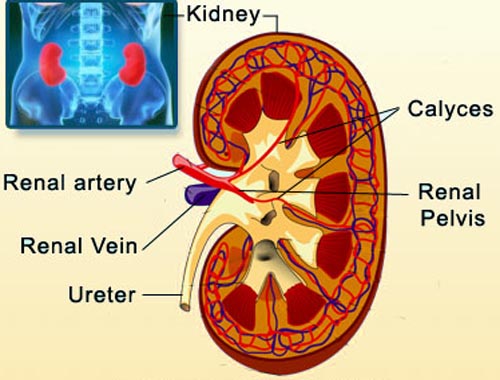Fanconi syndrome
Fanconi syndrome is a condition where the tubules of the kidneys do not function properly. In the normal kidneys the tubules there function to reabsorb vitamins, minerals, and sugars back into the body to be reused. This is a disorder of the kidney tubes in which certain substances normally absorbed into the bloodstream by the kidneys are released into the urine instead. Fanconi syndrome can be caused by faulty genes, or it may result later in life due to kidney damage. Sometimes the cause of Fanconi syndrome is unknown. Common causes of Fanconi syndrome in children are genetic defects that affect the body's ability to break down certain compounds such as: Cystine (cystinosis); Fructose (fructose intolerance); Galactose (galactosemia); Glycogen (glycogen storage disease); Cystinosis is the most common cause of Fanconi syndrome in children. Other causes in children include: Exposure to heavy metals such as lead, mercury, or cadmium; Lowe's disease, a rare genetic disorder of the eyes, brain, and kidneys; Wilson's disease; In adults, Fanconi syndrome can be caused by various things that damage the kidneys, including: Certain medications, including azathioprine, cidofovir, gentamicin, and tetracycline; Kidney transplant; Light chain deposition disease; Multiple myeloma; Primary amyloidosis.
